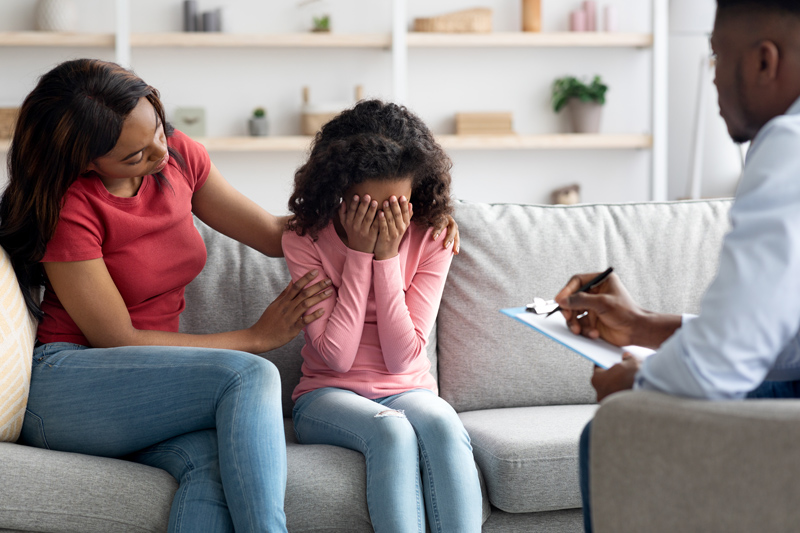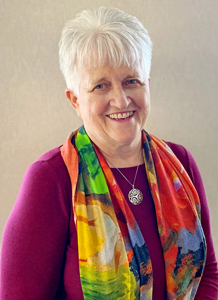Without question, our children and youth benefit greatly when they have a safe, stable, and nurturing environment to call home. These elements, when coupled with positive relationships, provide a strong foundation to support brain development and resilience, which enables our youth to thrive throughout their lives.

This positive environment is even more critical for youth who have mental health challenges. Being able to live in a nurturing home surrounded by positive relationships can have a remarkably positive impact as they mature into adults.
But maintaining this environment isn’t simple, and as mental health problems present in children and teens, they and their caregivers may experience crises. At these times, they can benefit from intensive and focused mental health programs.
That’s why New York State is implementing evidence-based and research-backed programming to support youth and families in times of crisis. This includes Home-Based Crisis Intervention, Youth Assertive Community Treatment, and High-Fidelity Wraparound Care Management – all programs aimed at keeping children and adolescents where they are most likely to have the best possible outcome: At home in their community.

Ann M. Sullivan, MD
Commissioner
NYS Office of Mental Health
New York State’s specialized Home-Based Crisis Intervention model solely serves children and youth and is geared toward families needing intensive support to avert unneeded psychiatric hospitalization or residential treatment. This program provides individualized and family-driven care to children from the age of 5 up until they turn 21. Services include clinical interventions and case management to help them stay in a safe, stable, and nurturing environment.
Home-Based Crisis Intervention supports families with a child or adolescent experiencing a psychiatric crisis, which can include suicidal thoughts, aggressive outbursts, lengthy periods of school avoidance, or self-injurious behavior. Referrals may come from any provider or community member aware of the need, including the family or youth themselves.
As a crisis service, program staff typically arrive at the individual’s home within two business days and then provide around-the-clock support seven days per week. The youth and their family are typically served for four to six weeks by one interventionist, which can benefit the youth and the family by providing the consistency and predictability of working with one program staff during this stressful time.
First established in New York City in 1995, Home-Based Crisis Intervention now exists in 55 counties throughout the state, with work underway to cover the remaining seven counties within the year. OMH funds 41 teams – each including a supervisor and multiple interventionists – serving about 1,800 families annually.
Last year, four additional teams were developed specifically for children and youth with mental health and intellectual or developmental delays, with an additional six of these specialized teams expected to be added shortly. Once completed, this expansion is expected to nearly double the total number of children and youth diverted away from unnecessary psychiatric hospitalizations and out-of-home treatment.
Recent data reported by these teams is inspiring: A remarkable 81 percent of recipients in 2024 did not require crisis services within a month of their discharge. Participation in this program also helped keep families connected to services, with 87 percent reporting that they remained enrolled in at least one ongoing support.
Home-Based Crisis Intervention also helped clear a path for transitions to less intensive care. About 73 percent of recipients reported being enrolled in stepped down services, including care coordination, a mental health clinic, day treatment, high-fidelity wraparound, and Youth Assertive Community Treatment.
New York is the first state to adopt the successful Assertive Community Treatment model – also known as ‘ACT’ – to serve youth – from age 10 to young adulthood. Youth ACT teams include mental health clinicians, psychiatric prescribers, youth and family peer advocates, clinical support staff, and a program assistant. Each team offers comprehensive, around-the-clock support seven days a week, with youth and families utilizing these services for between 18 months and two years.
The state now supports 25 Youth ACT teams covering 33 counties. Teams have the capacity to serve between 28 and 36 children, each with significant psychiatric needs and at risk of needing out-of-home placement and intensive interventions. Additional teams are in planning, with the expectation of growing them to 42 statewide shortly.
Additionally, the state is pioneering an innovative care management approach called High Fidelity Wraparound, an evidence-based care management practice model for youth served by multiple systems. This initiative partners youth with significant mental health needs and supportive family members with a single care manager. This can help prevent those helping the child from becoming overwhelmed. There are now 24 locations using the High-Fidelity Wraparound approach, with more than 760 youth served.
These models come at a critical juncture. Youth mental health has been a growing concern, with many considering our state and nation to be at a point of crisis. Increased instances of trauma, anxiety, and mood disorders were only exacerbated by the COVID-19 pandemic. Providers are seeing more self-medication and a general decrease in social-emotional function among children and youth.
All three of these models play a central role in our efforts to care for youth. These services help youth and families in crisis work together in their homes and community to enable the young person to grow and thrive into the future.
Dr. Ann M. Sullivan is Commissioner of the New York State Office of Mental Health.



